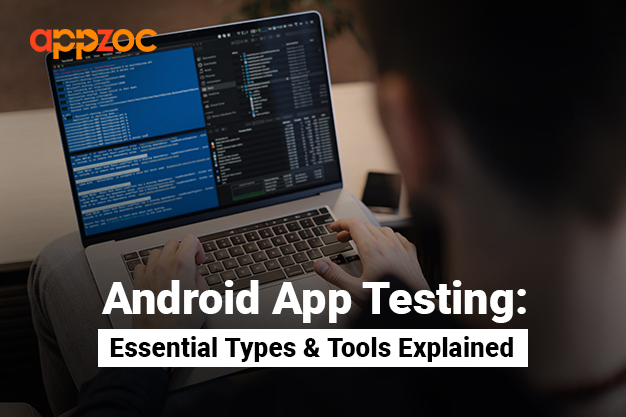
Flutter
Make the most of this cutting-edge technology by developing apps quickly! Our Flutter solutions have amazing features that can be used to create sleek, high-performance apps that can scale seamlessly across platforms.

In the fast-paced world of mobile app development, ensuring the quality and functionality of your Android applications is paramount. For Android development companies in Ernakulam and Android app development companies in Bangalore, comprehensive app testing is essential to deliver a seamless user experience and stay competitive in the market. In this blog post, we will explore the essential types of Android app testing and the tools that can help these companies achieve success. Additionally, we will highlight the importance of thorough testing to meet the growing demands of the mobile app industry.
Unit testing involves evaluating individual components or functions of the app in isolation. Developers can identify and fix bugs in specific code segments, ensuring that each part functions correctly. Popular unit testing frameworks for Android include JUnit and Espresso.
Integration testing focuses on how different components of the app interact with each other. It helps identify issues that may arise when multiple parts of the app are combined. Robolectric and UI Automator are valuable tools for integration testing.
Functional testing assesses the app’s functionality by simulating user interactions. Test cases are designed to ensure that all app features and functionalities work as expected. Tools like Appium and Calabash are often used for this purpose.
UI testing verifies the app’s user interface, ensuring that it looks and behaves correctly on various devices and screen sizes. Espresso and UI Automator are popular tools for UI testing.
Performance testing evaluates the app’s responsiveness, speed, and resource utilization under different conditions. This includes stress testing, load testing, and benchmarking. Tools like Apache JMeter and Firebase Performance Monitoring can help assess app performance.
Security is a critical aspect of app testing, especially for companies handling sensitive data. Security testing identifies vulnerabilities and ensures data protection. Tools like OWASP ZAP and Burp Suite are commonly used for security testing.
Compatibility testing ensures that the app functions correctly on various Android devices, OS versions, and screen sizes. Tools like Firebase Test Lab and BrowserStack provide a range of device and OS configurations for testing.
Android Studio provides a built-in testing framework with tools like Espresso for UI testing and JUnit for unit testing. It is the go-to IDE for Android app development and testing.
Appium is an open-source automation tool that supports both Android and iOS app testing. It allows testing on real devices and emulators, making it versatile for Android development companies in Ernakulam and Bangalore.
Firebase Test Lab offers a cloud-based testing infrastructure that allows developers to test their apps on real devices hosted by Google. It provides a wide range of device configurations for comprehensive testing.
Calabash is an open-source mobile app testing framework that supports both Android and iOS. It enables behavior-driven development (BDD) and is widely used for functional testing.
UI Automator is a Google-backed testing framework specifically designed for UI testing on Android. It provides a powerful set of APIs to interact with the device’s user interface.
Apache JMeter is primarily used for performance testing. It can simulate a large number of users and various network conditions to assess an app’s performance under load.
For Android development companies in Ernakulam and Android app development company in Bangalore, effective testing is crucial to delivering high-quality apps that meet user expectations. By incorporating a combination of unit testing, integration testing, functional testing, UI testing, performance testing, security testing, and compatibility testing, these companies can ensure their apps perform seamlessly on a wide range of devices and platforms.
Moreover, leveraging tools such as Android Studio, Appium, Firebase Test Lab, Calabash, UI Automator, and Apache JMeter can streamline the testing process and identify issues early in the development cycle, ultimately reducing the cost and effort required for bug fixes.
In the competitive landscape of mobile app development, prioritizing testing and quality assurance is a strategic move that can lead to the success and growth of Android app development companies in Ernakulam and Bangalore. It not only enhances user satisfaction but also helps build a strong reputation in the industry.